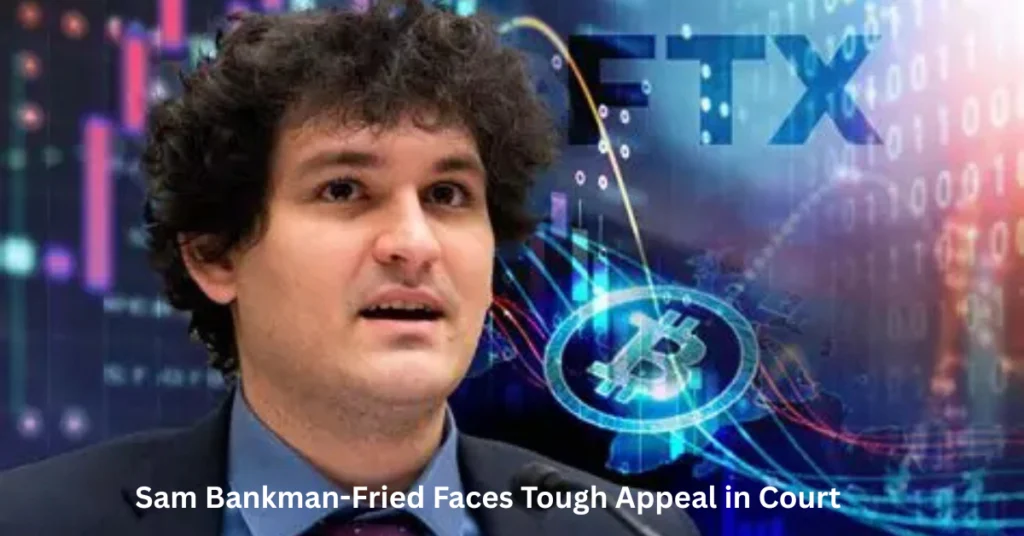FTX founder Sam Bankman-Fried (SBF) faced another difficult day in court this week as his legal team appeared before the U.S. Court of Appeals for the Second Circuit to challenge his criminal conviction. Despite his defense’s efforts to argue that the original trial was unfair, the three-judge panel appeared deeply skeptical of their claims — signaling yet another uphill battle for the disgraced crypto mogul.
A Long-Shot Appeal
It was always going to be hard for Sam Bankman-Fried to get elected. The case was first heard by Senior Judge Lewis Kaplan of the Southern District of New York. Judge Kaplan is a well-respected judge who is known for carefully handling high-profile cases. To overturn Kaplan’s decision, Sam Bankman-Friend lawyers had to show that there was major judicial mistake or bias, which was a tough standard to meet. His attorney, Alexandra Shapiro, argued that Judge Kaplan was unfair during the trial, preventing the defense from presenting key arguments, including that Sam Bankman-Fried relied on legal advice and believed FTX’s creditors would ultimately be repaid.
“The defense was cut off at the knees by [Judge Kaplan’s] rulings,” Shapiro argued, claiming that the judge’s decisions created “a severe asymmetry” in how evidence was presented to the jury.
Judges Push Back on Defense Claims
The appeals panel — consisting of Judges Eunice Lee, Maria Araújo Kahn, and Barrington Parker — didn’t seem convinced. Their questions repeatedly challenged the defense’s claim that the trial was biased or unfair.
Judge Kahn pressed Shapiro on whether FTX’s collapse was a problem of solvency rather than liquidity, referencing a recent Supreme Court ruling that suggested defrauding victims does not require proof of intent to leave them uncompensated. “How do you square that with the precedent that intent to repay is not a valid defense?” she asked.
Judge Parker was equally unconvinced, questioning whether testimony about FTX’s lawyers would have changed the outcome. “Are you seriously suggesting to us that if your client had been able to testify about the role attorneys played, the verdict would have been different?” he said pointedly.
Shapiro even referred to media coverage of the trial, claiming that many rulings were “incredibly one-sided.” She argued that Judge Kaplan’s actions unfairly prevented Sam Bankman-Friend from showing that FTX functioned as a margin exchange, where customers understood that funds could be loaned out — not stolen.
Government Pushes Back
Representing the prosecution, Assistant U.S. Attorney Thane Rehn defended the government’s conduct and dismissed claims of judicial bias. Rehn argued that the government’s case focused on the misappropriation of customer funds, not FTX’s later bankruptcy or potential creditor recovery.
“The money had already been misused by the time customers were unable to withdraw their funds,” Rehn said, emphasizing that this behavior met the standard for fraud regardless of FTX’s eventual repayment claims.
While the judges grilled Shapiro’s side with pointed questions, they spent much of their time with Rehn discussing the $11 billion forfeiture amount imposed on Sam Bankman-Friend. Judge Lee questioned whether such a large figure was justified if FTX’s creditors could eventually be repaid through the ongoing bankruptcy process.
Rehn explained that the figure reflected total customer losses based on the dollar value of assets at the time of FTX’s collapse in November 2022. “Even if creditors are repaid in dollar terms, many customers are not being made whole in a real economic sense,” he said, pointing out that Bitcoin’s price has since risen dramatically.
A Narrow Path Forward for Sam Bankman-Friend
The appeals court did not issue an immediate ruling, and it could take weeks or months before a written decision is released. However, given the skeptical tone of the hearing, few observers believe Sam Bankman-Fried will succeed in overturning his conviction.
If the president didn’t grant him a pardon, this plea might have been his last chance to get out of jail early. For now, Sam Bankman-Friend is still in jail and can only talk to people through social media posts made by friends.
Other Crypto-Related Court Updates
It wasn’t just Bankman-Fried making headlines in crypto-related courtrooms this week.
Samourai Wallet developer Keonne Rodriguez was sentenced to five years in prison after pleading guilty to operating an unlicensed money transmission business. His co-developer, William Lonergan Hill, will be sentenced later this month. Judge Denise Cote said Rodriguez had not accepted the seriousness of his actions, calling them “anti-social criminal behavior.”
In another case, a federal judge declared a mistrial in the prosecution of Anton and James Peraire-Bueno, two brothers accused of stealing $25 million in crypto by exploiting Ethereum’s MEV-Boost software. The jury could not reach a unanimous verdict on wire fraud and money laundering charges, meaning prosecutors may retry the case.What’s Next in Crypto Law
This week, there aren’t any big court hearings or congressional meetings planned on how to regulate crypto. Next week, the Senate will assemble again, while the House of Representatives is still on recess.
While the court cases over crypto are still going on, the Sam Bankman-Fried case is a turning point in how judges view bad behavior in blockchain markets. He has already changed the way people in the bitcoin business talk about trust, openness, and responsibility, even if he is found guilty.

